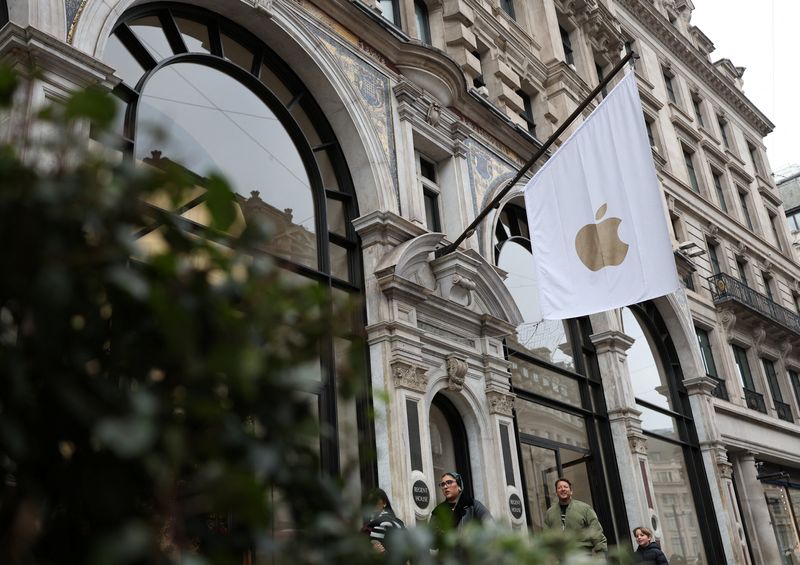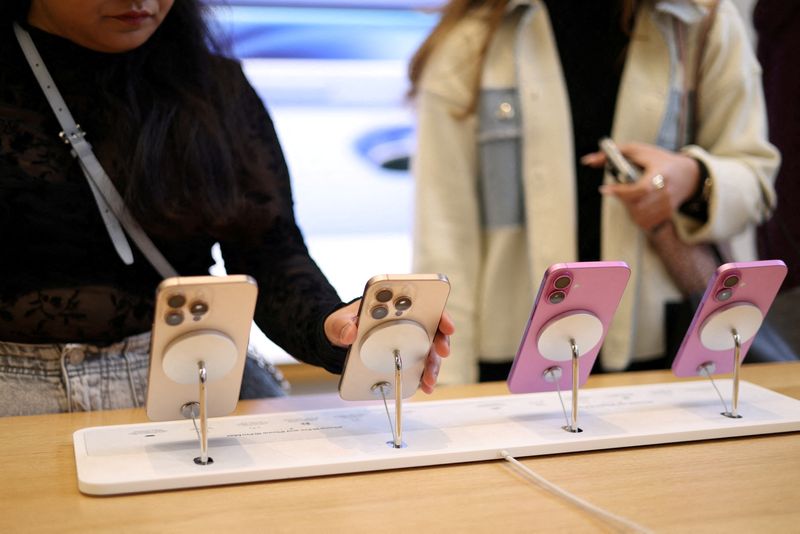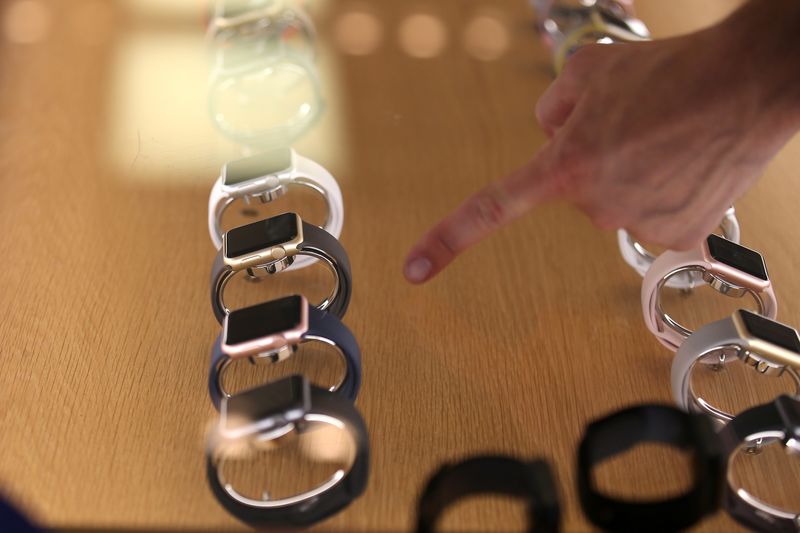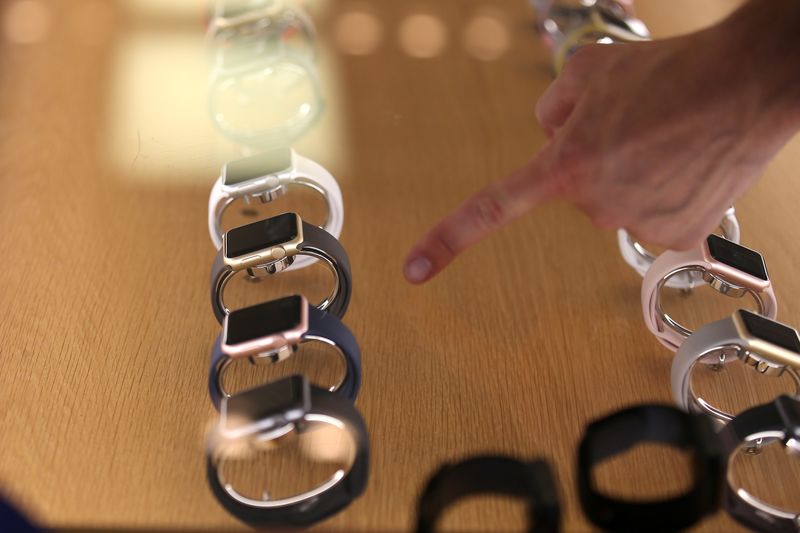Tech Giants Under Fire: Apple Faces $1.8 Billion Lawsuit in UK’s First App Store Class Action
In a significant development that’s sending shockwaves throughout the tech world, Apple is embroiled in a major lawsuit in the UK, where it’s facing a whopping $1.8 billion claim over alleged anti-competitive practices on the App Store. This explosive case marks the UK’s first-ever class action lawsuit against a tech giant, and could have far-reaching implications for the way we interact with our devices.

The Apple App Store Lawsuit: A $1.8 Billion Battle in the UK

Gizmoposts24 has been following the ongoing lawsuit between Apple and British app developers, which has escalated into a $1.8 billion battle in the UK. The case, brought on behalf of around 20 million iPhone and iPad users, alleges that Apple’s App Store commission charges are unfair and have cost British consumers up to 1.5 billion pounds.
The lawsuit, which began on Monday, is the first mass lawsuit against a tech giant to come to trial under Britain’s burgeoning class action-style regime. Gizmoposts24 will provide in-depth analysis and updates on this significant case, which has far-reaching implications for the tech industry and its business models.

Lawsuit Background and Key Points
Case Overview
The Apple App Store lawsuit is a class-action suit brought on behalf of around 20 million iPhone and iPad users in the United Kingdom. The lawsuit alleges that Apple’s 30% commission charges on app purchases are unfair and have cost British consumers up to 1.5 billion pounds.
The case is being brought by British academic Rachael Kent, who argues that Apple has made “exorbitant profits” by excluding all competition for the distribution of apps and in-app purchases.
Argument Against Apple
Kent’s argument is centered around Apple’s dominance in the app market and the alleged exploitation of app developers and consumers. Her lawyers argue that Apple has a 100% monopoly position in the market, allowing it to impose restrictive terms on app developers and charge excessive commission.
- Kent’s lawyer, Mark Hoskins, stated that Apple’s dominance has allowed it to make “exorbitant profits” by excluding all competition for the distribution of apps and in-app purchases.
- Kent’s case argues that Apple’s commission charges are unfair and have cost British consumers up to 1.5 billion pounds.
- Apple’s lawyer, Marie Demetriou, stated that 85% of developers do not pay any commission at all.
- Demetriou argued that the commission is necessary to maintain the security and privacy of the iOS ecosystem.
Apple’s Defense
Apple’s defense is centered around its commission charges being a reflection of “the enormous benefits conferred through Apple’s innovation by the iOS ecosystem as a whole”. The company’s lawyer, Marie Demetriou, argued that the commission is necessary to maintain the security and privacy of the iOS ecosystem.
The Economic Impact of Apple’s Commission Charges
Cost to Consumers
The estimated 1.5 billion pounds ($1.8 billion) in costs to British consumers is a significant figure, and Gizmoposts24 will analyze the potential impact on consumers and the wider market.
The lawsuit alleges that Apple’s commission charges have cost consumers up to 1.5 billion pounds. This figure is based on the assumption that consumers have paid the full 30% commission on all app purchases.
Developer Fees
The 30% commission charged by Apple has implications for app developers, who must pay this fee on all app sales. Gizmoposts24 will examine the potential impact on developers and their businesses.
- The 30% commission charged by Apple is a significant fee for app developers, who must pay this on all app sales.
- The commission has implications for developers’ profit margins and their ability to invest in their businesses.
- Apple’s revenue streams include app sales, in-app purchases, and hardware sales.
- The company’s profit margins are substantial, with a net profit margin of around 20%.
Revenue Streams
Apple’s revenue streams are significant, and the company’s profit margins are substantial. Gizmoposts24 will analyze the potential impact of the lawsuit on Apple’s revenue and profit margins.
The UK’s Class Action Regime and Its Implications
Britain’s Competition Appeal Tribunal
The Competition Appeal Tribunal (CAT) is the body responsible for hearing class-action lawsuits in the UK. Gizmoposts24 will examine the role of the CAT and its implications for the tech industry.
The CAT is a specialized tribunal that hears cases related to competition law. The tribunal has the power to award damages to claimants in class-action lawsuits.
Tech Giants and Class Actions
The Apple lawsuit is not the only class-action lawsuit against a tech giant in the UK. Gizmoposts24 will examine the impact of the lawsuit on other tech companies, including Google and Meta.
- Google is facing a similar $1.1 billion case over the commission it charges app developers for access to its Play Store.
- Meta is also facing a high-value mass lawsuit in Britain over its commission charges.
- The lawsuit has sparked a debate about the commission fees charged by tech giants.
- The lawsuit has implications for the business models of tech companies, including Apple, Google, and Meta.
Global Implications
The Apple lawsuit has global implications, and Gizmoposts24 will examine the potential impact on the tech industry and its business models.
Apple’s Position and Counterarguments
Security and Privacy
Apple has emphasized the importance of its integrated approach to the iOS ecosystem, which prioritizes security and privacy. Gizmoposts24 will examine the potential impact of the lawsuit on Apple’s security and privacy measures.
Apple’s approach to security and privacy is a key differentiator for the company, and the lawsuit has sparked a debate about the potential impact on these measures.
Intellectual Property Rights
Apple has argued that its technology is protected by intellectual property rights. Gizmoposts24 will examine the potential implications of the lawsuit on Apple’s intellectual property rights.
- Apple has argued that its technology is protected by intellectual property rights.
- The lawsuit has sparked a debate about the potential implications for Apple’s intellectual property rights.
- Apple has argued that the lawsuit is an attempt to expropriate its property rights.
- The lawsuit has sparked a debate about the potential implications for Apple’s property rights.
Expropriation of Property Rights
Apple has argued that the lawsuit is an attempt to expropriate its property rights. Gizmoposts24 will examine the potential implications of the lawsuit on Apple’s property rights.
Practical Implications and Analysis
Developer Impact
The lawsuit has implications for app developers, who must pay the 30% commission on all app sales. Gizmoposts24 will examine the potential impact on developers and their businesses.
The commission has implications for developers’ profit margins and their ability to invest in their businesses.
Consumer Impact
The lawsuit has implications for consumers, who have paid the full 30% commission on all app purchases. Gizmoposts24 will examine the potential impact on consumers and the wider market.
The lawsuit has sparked a debate about the commission fees charged by tech giants.
Industry Trends
The lawsuit has implications for the tech industry and its business models. Gizmoposts24 will examine the potential impact on the industry and its trends.
- The lawsuit has sparked a debate about the commission fees charged by tech giants.
- The lawsuit has implications for the business models of tech companies, including Apple, Google, and Meta.
Conclusion
safe



Add Comment